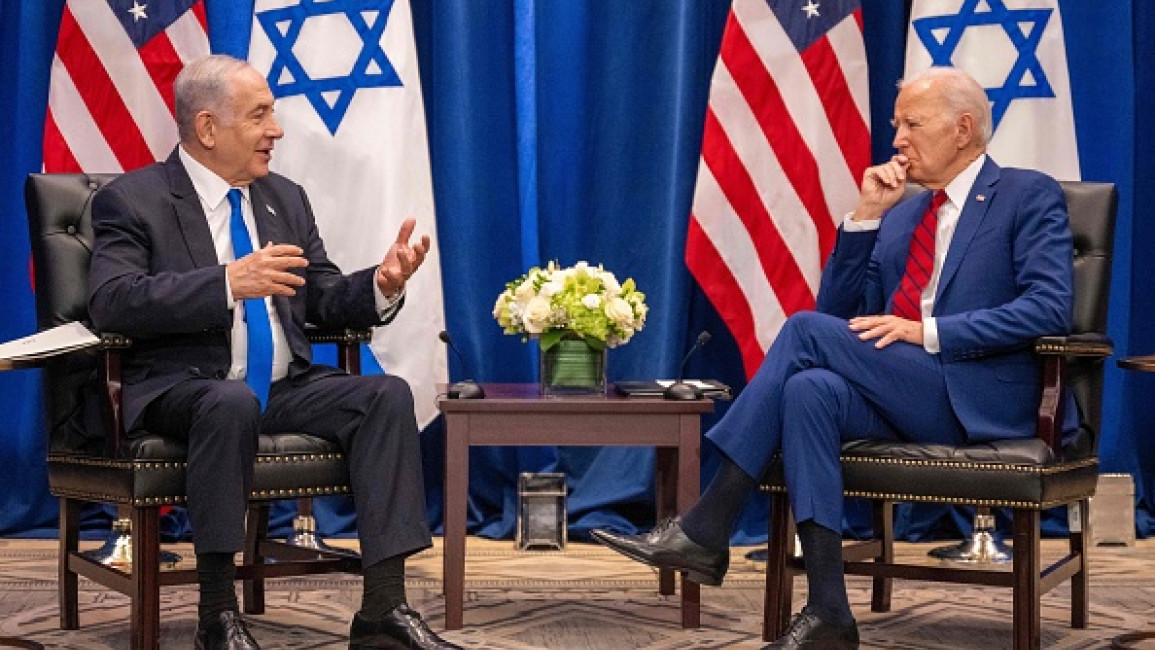US pushing for new deal to normalise Israel-Saudi ties in exchange for Palestinian statehood: reports
The US administration is considering a new deal to persuade Israel to recognise Palestinian statehood in exchange for normalising ties with Saudi Arabia, as officials work to orchestrate a post-war plan for Israel and the Palestinians.
The deal would see Israel accept Palestinian statehood in exchange for a fruitful relationship with Saudi Arabia, one of the region's most powerful nations and rival to Shia-majority Iran.
According to a report in American newspaper The Wall Street Journal, the White House is enticing Riyadh into an agreement with a three-pronged deal that includes a formal defence deal with Washington, assistance in acquiring civil nuclear power and the US taking greater steps to pave the way for a Palestinian state.
US officials cited in the report say that such a deal is in the "final stages of negotiating".
Israel is believed to have desired Saudi friendship for some time; Tel Aviv knows it would bring it regional edge in the face of threats from Iran, who maintains a rivalry with Sunni Muslim majority Saudi Arabia.
The report says that US officials are hoping the joint response to the recent attack on Israel, which saw Tehran launch hundreds of missiles and drones over Israeli skies, will serve as an incentive for Saudi Arabia to benefit from what could be greater security cooperation against Iran.
Israel, with support from American, British and Jordanian air forces, took out some 99 percent of the air attacks launched by Iran last weekend.
Saudi Arabia has maintained for some time that the creation of a Palestinian state must be part of any deal with Israel.
In September last year, in a rare interview, Crown Prince Mohammed bin Salman said that "the Palestine issue" is an integral part to formalising relations with Israel.
However, the topic is less palatable for Israeli Prime Minister Netanyahu, who has repeatedly stated his opposition to statehood – particularly in the wake of Hamas' attack on southern Israel on 7 October.
The White House has been attempting to broker a deal between Riyadh and Tel Aviv for some time following President Trump's Abraham Accords, but the negotiations derailed in the aftermath of 7 October and the Gaza war.
Conversations between US and Saudi officials have restarted in recent months, centred around the need for a Hamas-Israel ceasefire deal alongside a post-war plan for Palestinians, as officials disagree over who should control Gaza.
In March, top US diplomat Anthony Blinken visited Saudi Arabia and said afterwards that "good progress" had been made on normalising ties between the Kingdom and Israel.
"The progress is good, it’s real," Blinken told reporters. "I can’t put a time frame on it, but we are I think getting close to a point where we’ll have agreements".
With ceasefire negotiations between Israel and Hamas stymied, diplomats are searching for alternative options to appease the warring parties. According to the report, the US is hoping that a Saudi-Israel deal might lure Tel Aviv with an exit route of out Gaza.
However, with the Gaza war ongoing and Netanyahu ignoring international concerns over his plans for a full-scale invasion of Gaza's border city Rafah, where 1.5 million Palestinians are sheltering, emotions remain high and negotiations are fragile.



